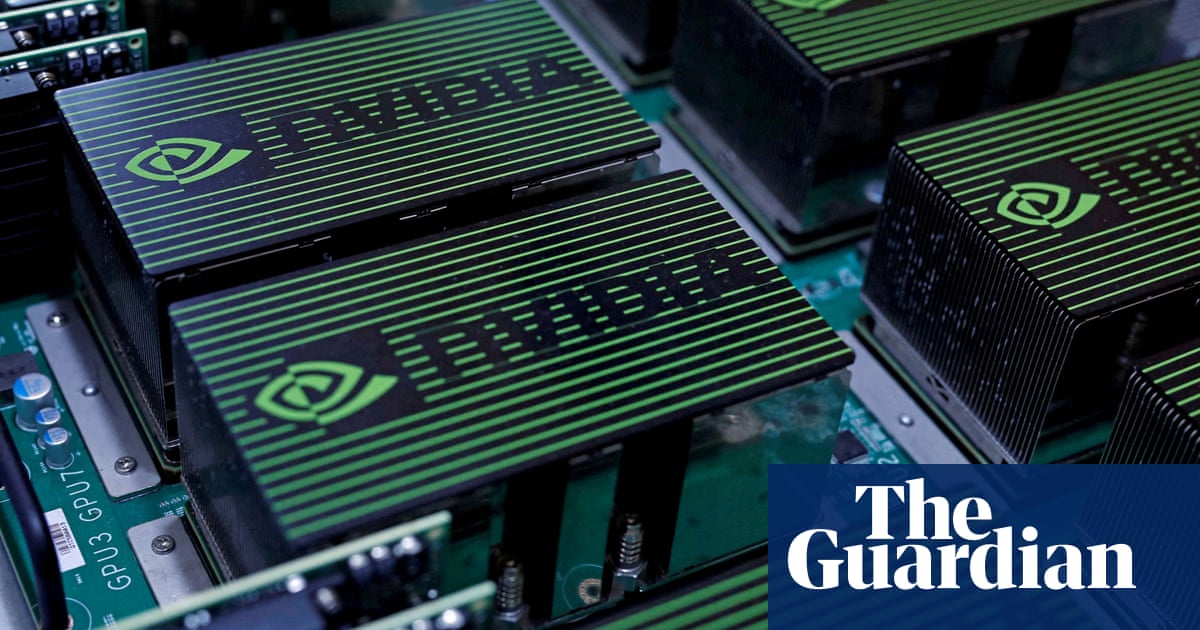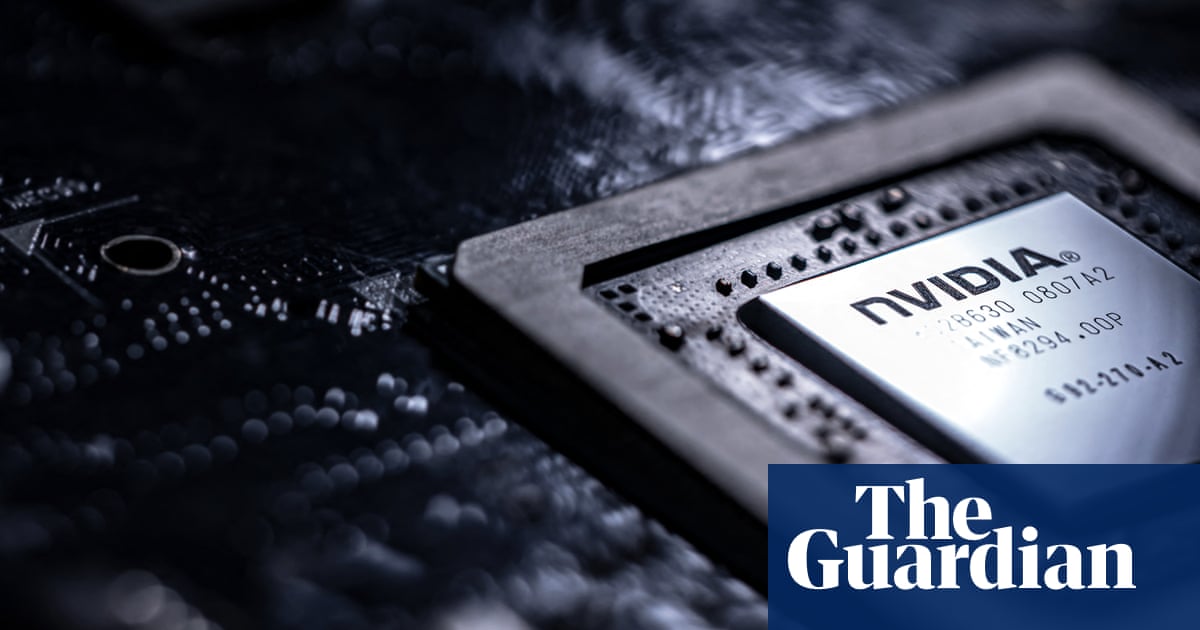
US chipmaker Nvidia reached a $1tn valuation on Tuesday morning as investors continue to rally around the company, which produces chips used to power artificial intelligence technology.
Shares in the company started to jump on 24 May after it announced second-quarter revenue forecasts that were more than 50% higher than investors’ expectations. Nvidia’s share price rose over 25%, and its market value climbed to $940bn by the end of the next day.
On Tuesday, shares rose another 4.2%, bringing Nvidia over the trillion-dollar edge, the first chipmaker to reach the milestone. Other companies with trillion-dollar valuations include household names like Meta, Amazon and Alphabet, Google’s parent company. Nvidia is the ninth company in history to reach the valuation, according to Bloomberg.
On a call with analysts on 24 May, when Nvidia announced its forecasts, CEO Jensen Huang said the company was benefiting from artificial intelligence’s “iPhone moment,” as interest in the technology has rocketed since the introduction of OpenAI’s ChatGPT in November.
“We’re seeing incredible orders to retool the world’s data centers,” Huang said. “I think you’re seeing the beginning of … a 10-year transition to basically recycle or reclaim the world’s data centers and build it out as accelerated computing.”
Nvidia was founded in 1993, and for much of its early history, designed chips used for video games. The company found growth around the boom in cryptocurrency as its processing technology was used for mining digital coins, but as the crypto “winter” settled in, Nvidia’s share price declined over the course of 2022.
However, as the largest chipmaker for AI technology, Nvidia is benefiting from heavy Wall Street investment as companies race to adapt and apply the technology. The chips provide the heavy processing power needed to develop new applications. UBS estimated that developing ChatGPT took 10,000 Nvidia chips.
“Nvidia is the poster child for AI at the moment,” said Thomas Hayes, the chair of Great Hill Capital. “The market is coming to terms with if this AI trend is real.”
Other companies involved with the AI chipmaking supply chain have enjoyed an Nvidia ripple effect boost in their share prices, including Taiwan Semiconductor Manufacturing Company, which makes chips designed by Nvidia, and ASML, a Dutch company that manufactures equipment used by Taiwan Semiconductor.
Some analysts have voiced scepticism over whether Nvidia’s rapid growth is intensified hype that will eventually settle down, especially as interest rates remain high. Bank of America analyst Michael Hartnett said the rally behind AI technology could be a “baby bubble”, as past bubbles began with free-flowing investment that ended with the Federal Reserve driving up interest rates.
Michael Mullaney, director of global research for Boston Partners, told Bloomberg that Wall Street’s interest in AI feels “frenzy-ish”.
“These are good companies. They’re not going bankrupt. But people are starting to pay exorbitant prices for them,” he said.
The Federal Reserve earlier this month implied it could pause hikes to the interest rates, currently at 5% to 5.25%, but said it will continue to assess whether more increases are necessary.
AI is also starting to become a political issue as US companies compete with China to produce microchips, and policymakers have started to ask questions about the regulation of AI technology.











